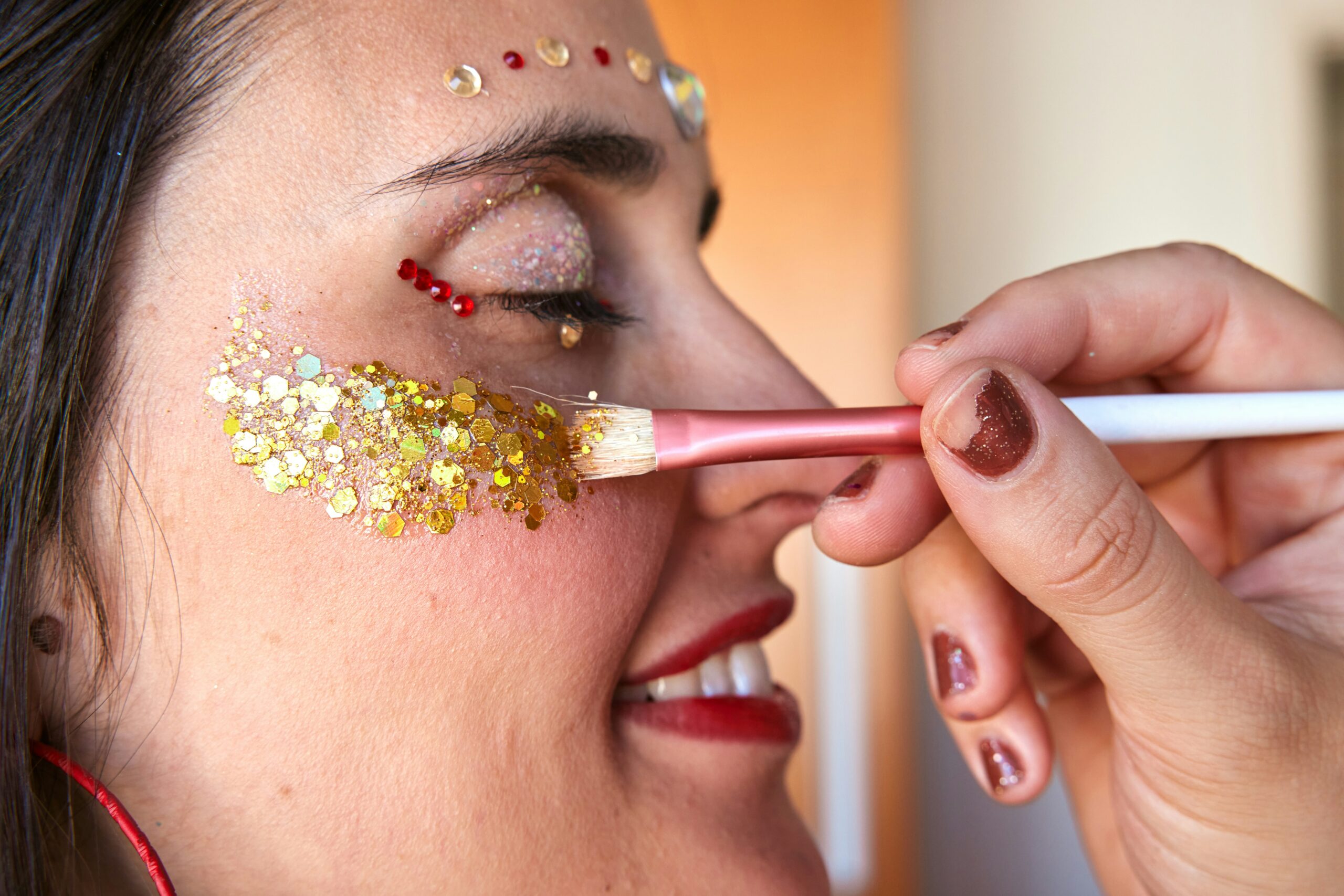Since I became a mom in 2022, I’ve struggled with feeling patriotic as an American. If I’m being honest, it’s been an ongoing internal battle since the 2016 election of Donald Trump.
I was at a pantsuit party in New York City where I was living at the time, anticipating an all-night celebration of the first female president—only to go home silent, in shock, unable to grasp what was happening in my country. The city felt uninspired, lifeless, and, well, terrified the next day—and truthfully, I think I held my breath most of the four years he was in office.
I exhaled in 2020 when Biden was elected, listening to the roar of relief flood over Boston. We were all still inside our apartment then, the thick of the pandemic still looming, but there was a collective release. I felt hopeful again.
But then I became a mom in 2022… and almost immediately, that feeling started to crumble. When my daughter was only a few months old, Roe v. Wade was overturned on a summer day.
I was having a playdate with a new mom friend when the news alert dinged on my phone. I gasped, looked down at my tiny daughter, and immediately my eyes welled up with tears. Again, I was in disbelief — just like I was that cold November evening in 2016. I couldn’t believe my child was about to grow up with fewer rights than I had —than even her grandmother had.
Now, two years later, that baby is a toddler. It’s November 2024, and I’m three weeks away from giving birth to her little sister. And once again, I’m lying in bed, staring at my phone in disbelief.
Donald Trump has been elected president. Again.
And while the first time felt like a warning sign, this time feels like a definitive statement: Mothers in America do not matter.
We were already bleeding from the cracks in a broken system—this just drove a stake through the center of it.
It’s no longer just Roe. It’s maternal mortality. It’s paid leave. It’s childcare deserts. It’s book bans. It’s gun violence. It’s LGBTQ+ rights being stripped in front of our children’s eyes. It’s climate change accelerating while we try to plan a summer that doesn’t send our kids into heat exhaustion. It’s immigration officers going undercover in plain clothes at schools and workplaces, separating families without warning.
It’s everything — and it’s too much.
I’ve always wanted to have children, but now I will have two girls — and I can’t help but shudder at the thought of putting them in red, white and blue to celebrate a country that has betrayed us. That has betrayed them. The idea of dressing them in a sparkly flag outfit feels not just hollow, but violent.
And I know I’m not alone. As fireworks light up the sky and the nation celebrates its “independence” on July 4th, a growing number of mothers in America will be putting their babies to bed with anxiety in their chests and grief in their throats.
Because the ideals of freedom and equality feel distant—nearly mythical—when you are a mother in a country that does not protect you, does not support you, and does not hear you.
Leigh Higginbotham Butler, founder of Akina Connect, articulates this disillusionment: “For many women of color and Black women in particular, the present political climate and persistent racial inequities make it challenging to feel patriotic, particularly in the spheres of maternal health and reproductive rights.”
The disparities in maternal health are glaring. Black women are three times more likely to die from pregnancy-related complications than white women. And those numbers only rise in states where abortion has been banned or severely restricted. This isn’t just a political issue—it’s a human one. It’s life or death.
Erin Erenberg, CEO of Chamber of Mothers, a bipartisan advocacy group founded and run by moms, echoes this discontent: “Mothers are fighting a sense of frustration with current law and policies, and a frustration with our ability to create change as quickly as we need.”
Despite being a major economic force—mothers control over 84% of household discretionary spending — we are treated as expendable. We are told to “choose better,” “budget better,” “wait our turn,” or “be grateful we have jobs at all.”
During the pandemic, nearly three million women left the workforce to shoulder care at home. We were called heroes. But when it came time to pass legislation—paid leave, affordable childcare, healthcare—Congress turned its back.
We’re expected to do it all, and do it quietly. Then we’re asked to wave a flag in celebration? No, thanks.
So what would freedom for American mothers look like? If we’re going to talk about patriotism, let’s talk about what it would mean to actually be free.
1. Support for Maternal Health and Reproductive Rights
As Butler notes, we need robust community-based programs, doula support, midwifery coverage, and Medicaid expansions. Limiting access to abortion has been linked to rising maternal mortality, and the consequences—especially for women of color—are well documented and devastating.
2. Comprehensive Paid Family and Medical Leave
Freedom means time. Time to heal. Time to bond. Time to care for aging parents or recover from domestic violence. The American Families Plan once proposed this, along with universal preschool. It didn’t pass. But it showed us what’s possible.
Erenberg says: Freedom for mothers would look like eliminating barriers to ambition and valuing care work.”
3. Affordable and Accessible Childcare
You shouldn’t have to be wealthy—or lucky—to find a safe, affordable place for your child. In many cities, waitlists are years long and prices are higher than mortgages. It’s unsustainable. And it’s keeping women out of the workforce, again and again.
4. Representation in Leadership
Right now, there are 541 members in the 119th U.S. Congress. While female representation has increased overall — with 155 women currently serving — only around 37 of them are mothers to children under the age of 18. Just three of those moms serve in the Senate.
To put that in perspective? There are still more men named John in the Senate than there are moms of young children.
This isn’t just a stat. It’s why we don’t have the laws we need.
Organizations like Vote Mama Foundation are working to close this gap—but they need our support.
This Independence Day, I won’t be celebrating a version of freedom that doesn’t include me—or my daughters. But I will be organizing. Advocating. Writing. Voting.
Not because I feel patriotic. But because I believe in a future where my girls can be. They deserve a country that gives them equal rights over their bodies, their dreams, and their choices — if they choose to become mothers themselves one day.
Until then, the fight continues. For me. For them. For all of us.
Author
-
Lindsay Tigar is the co-founder of Mila & Jo Media, an award-winning journalist, two-time entrepreneur and mama to Josefine. She's also a parental leave certified executive coach.
View all posts
She's a frequent-flier, Peloton addict, and a coffee and champagne snob. Her friends are her family and her lifeline.
Lindsay calls Asheville, NC home but spends much time in Denmark, her husband's home country.
Follow Lindsay on Instagram. and visit her website.




